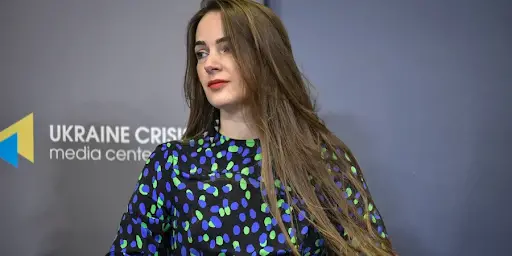Occupation is just another form of war. Nobel Peace Prize Laureate Alexandra Matviichuk calls on the world not to believe russia's false promises

The 30th Lviv Book Forum hosted a discussion on the topic: "The Marshall Plan for Ukraine: Why Ukraine's victory will be beneficial for everyone". Nobel Peace Prize laureate for 2022, Oleksandra Matviichuk, explained the reasons why Ukraine cannot accept the terms of peace proposed by russia:
"I keep saying that Ukrainians want peace the most. But peace does not come when the invaded country lays down its arms. Because then it will not be peace, but occupation. Occupation is just another form of war. I have been documenting russian war crimes for nine years, and I can say for sure that occupation is not just a change of one state flag to another. Occupation means forced kidnappings, torture, rape, forced deportation of Ukrainian children, erasure of identity, filtration camps, mass graves. When we talk about peace, we are talking about the opportunity to live without fear of violence and to have a long-term perspective. That is why calls for Ukraine to satisfy russia's imperial ambitions are not just wrong - they are immoral. We have no right to leave people in the occupied territories to die and be tortured," assures Oleksandra Matviychuk.
Matviychuk noted that the partner countries should focus on how to help Ukraine win quickly, not on how to prevent it from losing. She identified the main reason for this as the fear of taking decisive action, as Ukraine's victory means russia's loss. Emphasizing the lack of a strategy for russia's continued existence after defeat, Matviychuk believes that this shows a lack of political leadership and historical responsibility.
Regarding the topic of the discussion, she suggested that Ukraine's reconstruction should begin now, while the war is still ongoing. According to her, it is important to invest in reconstruction, development strategies and their implementation for local communities. Matviichuk called for support, investment, and finding opportunities for Ukraine's resilience independent of international assistance.
Other prominent speakers at the discussion included British historian and journalist Timothy Garton Ash, editor-in-chief of Ukrayinska Pravda Sevgil Musayeva, British journalist Emma Graham-Harrison, and Ukrainian political scientist Oleksandr Sushko.









